My Sunday morning inside Southport’s extremist Catholic sect
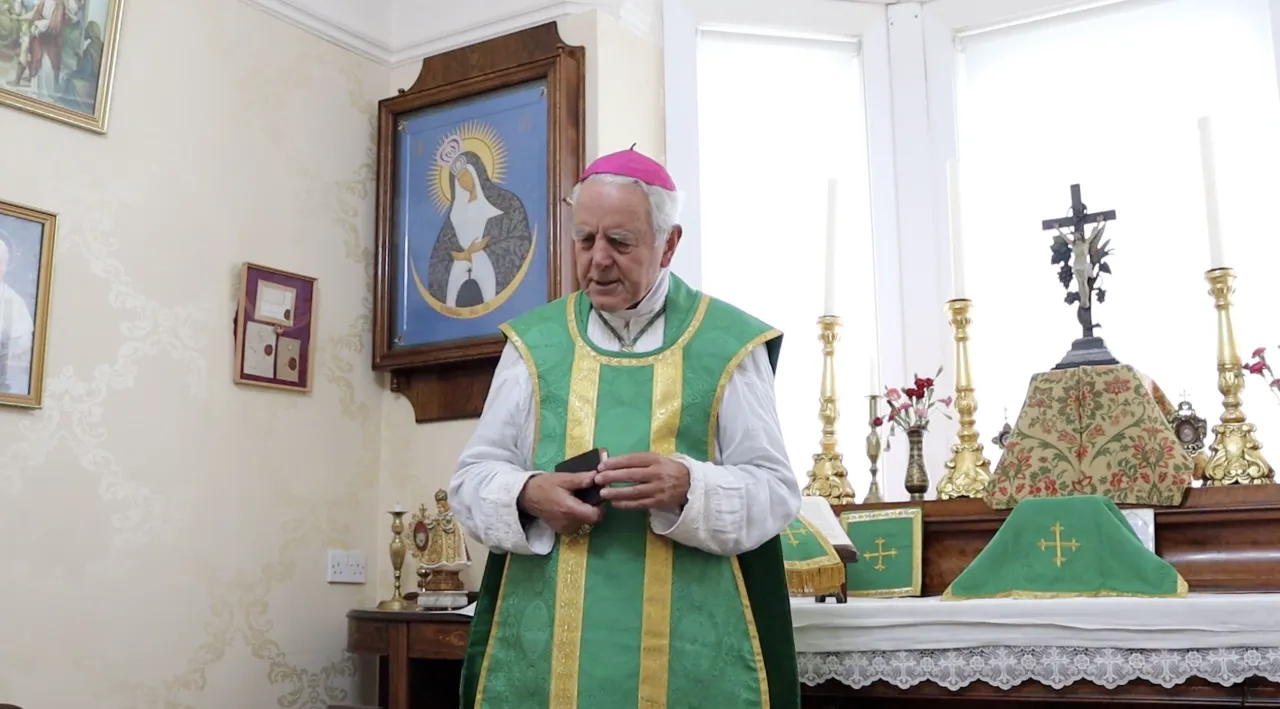
The Post goes undercover at a fringe church led by a Holocaust denier
Father Brendan King has finished his Sunday service, and over coffee outside the chapel he explains his problem with Jews. “The Devil’s been trying to destroy the church from the beginning,” he says, “and he’s been using all kinds of different means to achieve that end. There’s Freemasonry and the unbelieving Jews, they’ve got lots of power, lots of influence.”
Father King, who leads a small congregation of ultra-traditional Catholics in Southport, says Jews currently have “the upper hand” in their battle against the church but the power of God will ultimately win. “We are fighting, combating these forces all the time,” he says. “They’re very, very powerful. But the thing is, they can’t succeed. The gates of hell, the powers of evil, the Devil will not prevail against the church.”
Our surroundings — and Father King’s genial Yorkshire brogue — belie what I’m hearing. We’re in a gorgeous old house in the eastern end of Southport. It’s pleasingly ramshackle — “loved”, as an estate agent might say, filled with books and paintings and well-worn sofas. Later, a member of the congregation will take me on a tour of the kitchen garden and point out what’s growing in the raised beds. The property’s most unique feature is undoubtedly its chapel — which has stained glass and a dark wooden roof — connected to the main house.
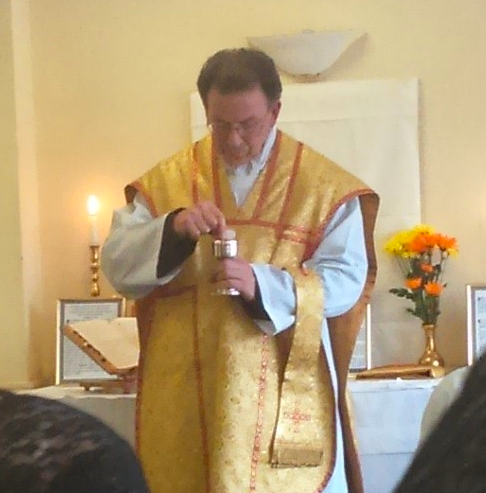
Today, at this service in early October, the chapel is packed with worshippers. Late-comers sit in an overflow room, where proceedings are broadcast live on a camera feed. I’m greeted at the front door with a handshake and a smile, and ushered to a seat in the chapel, where some chants are being played over a loudspeaker. The women wear long skirts and headscarves, the men are in shirts and jackets. They’re mostly middle-aged, and their heads are bowed in prayer, waiting for the service to begin. Not wanting to seem out of place, I do the same.
This is the weekly meeting of a renegade Catholic sect called the Society of St Pius X Resistance. It is bitterly opposed to the Vatican reforms of the 1960s, which tried to bring the church into the modern era. These changes caused two main sticking points. First, the Vatican allowed priests to minister in languages other than Latin. Second, it apologised for two millenia of antisemitism.
The Society of St Pius X, named after an early 20th century conservative pope, rejects these reforms. Pius saw attempts to reform the church as heretical, and said modernists “should be beaten with fists”. In time, the society founded in his honour would split. The SSPX Resistance broke from the main group, claiming to represent even more traditionalist values. There are a handful of Resistance-aligned chapters across England, including Kent, Berkshire and London.
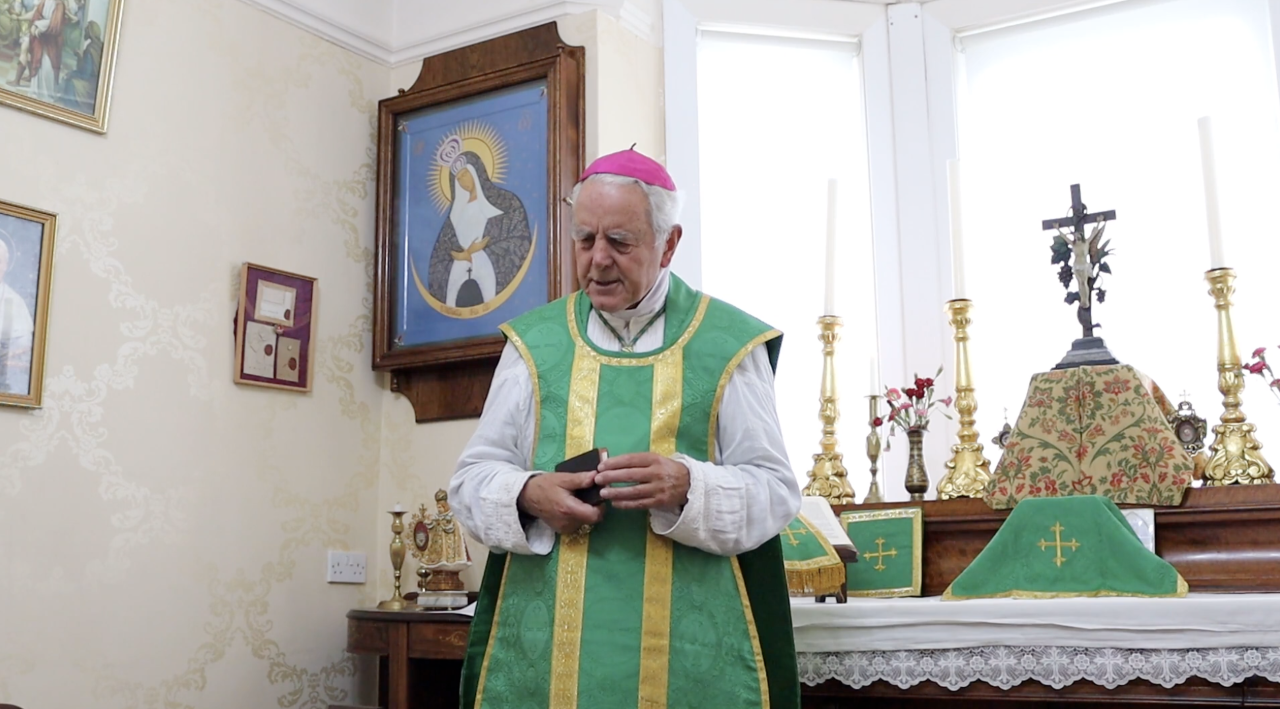
The SSPX Resistance isn’t just a storefront church or living room prayer circle with an esoteric practice — it’s an extremist group with historic ties to far-right organisations like the BNP. The group is led by one of Britain’s most prominent Holocaust deniers, Bishop Richard Williamson, whose sermons and interviews are popular on far-right internet forums. He is based in Broadstairs, Kent, and occasionally holds masses in London.
Williamson believes that Jews are responsible for the death of Christ, and in his sermons and lectures he frequently accuses them of being enemies of Catholicism. He also says Jews have launched a sophisticated and impressively multifaceted plot to “dissolve western nations, destroy their identity, their self-respect, their manliness” so they can enslave gentiles. The conspiracy theories don’t end there. Williamson thinks the Moon landings and 9/11 were both “a fraud”, and that Hillary Clinton is the head of a murderous child trafficking ring. He admires Hitler, saying he “did a lot of good, in many ways for Germany”.
For many years, Williamson has denied the Holocaust, calling it “quite simply a fabrication”. In one video, he says: “All the evidence points one way, and all the emotion points the other way.” Putting on a tone of mock hysteria, he adds: “Six million Jews wickedly killed in gas chambers by the Nazis, oooooh!… There wasn’t one gas chamber in Nazi Germany that was killing human beings. Not one.”
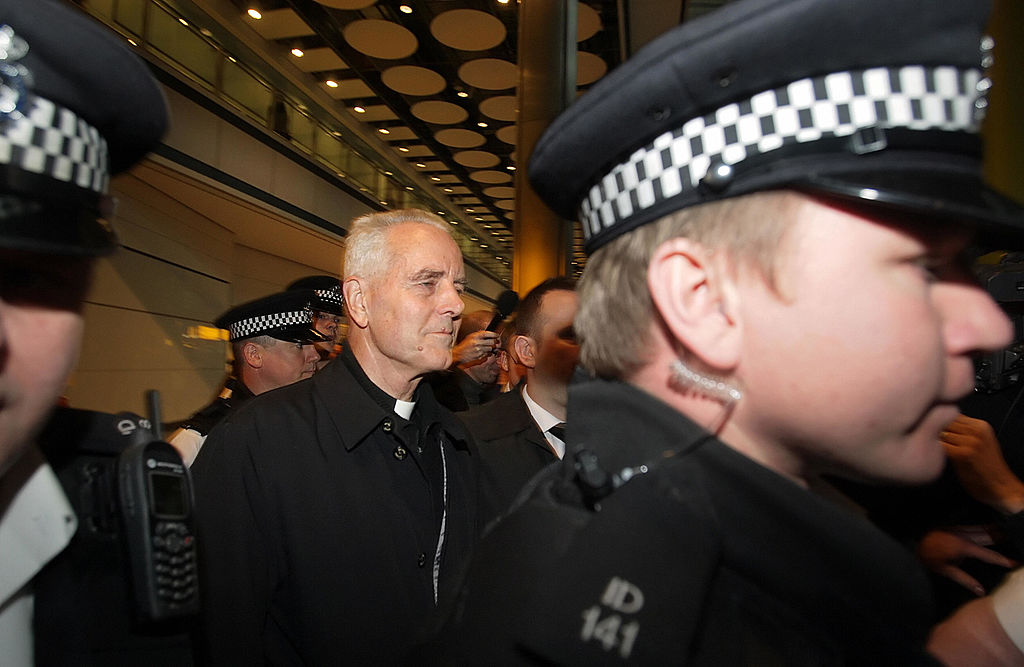
The Vatican has long taken umbrage with Williamson’s career. He holds the questionable accolade of being excommunicated twice, meaning he is no longer accepted as a member of the church. In 1988, he was kicked out after being illicitly ordained as a bishop. Pope Benedict XVI welcomed him back to the Vatican in 2009, although the invitation was poorly timed: Williamson had just spoken on TV to deny Nazi gas chambers. He expressed his regret for the interview, although he did not withdraw his statements, and as they were broadcast in Germany he was convicted of Holocaust denial in that country. Williamson was allowed to remain in the church until 2015, when he was excommunicated for consecrating a bishop without Vatican approval.
Despite his age — Williamson is 82 — he has become something of an inspiration to the young British far-right, who share clips of his Holocaust denial edited with synthey music and trendy graphics. I first came across Williamson while reporting for my website, Scout, where I write about extremist groups, particularly those with antisemitic beliefs. Part of the reason I report on these far-right actors is because I have Jewish roots in my family, and I want to investigate the prejudices that affected my grandparents and great-grandparents.
That’s why, back in August, I approached a representative of the SSPX Resistance under a pseudonym. I said I was interested in traditional Catholicism, and was eventually invited to mass in Southport, held at the home of the woman who owns the house with the chapel.
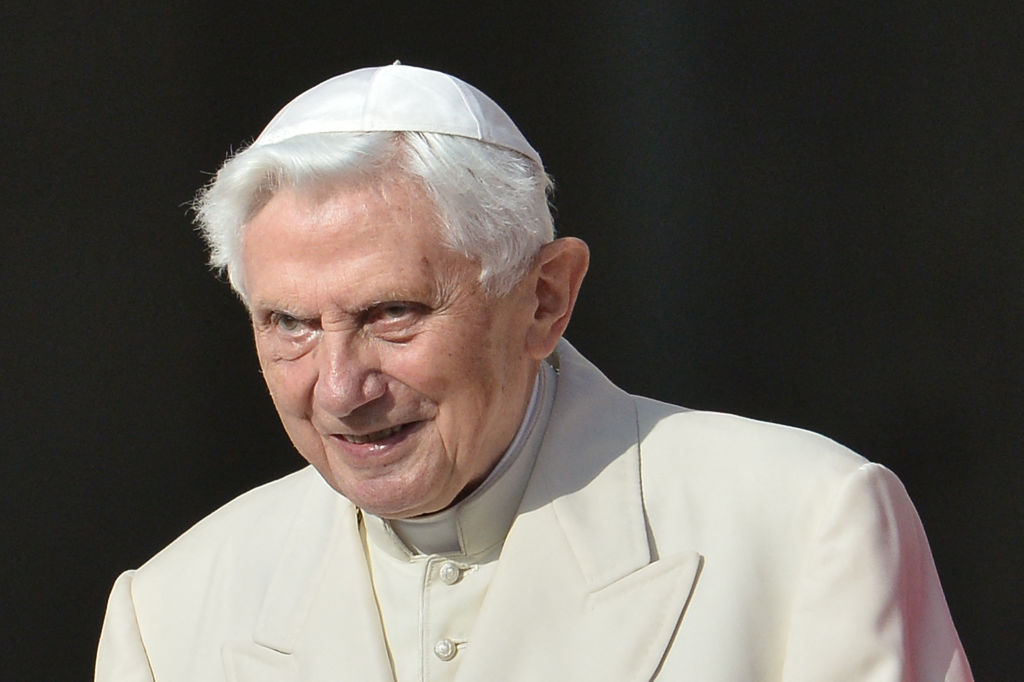
We meet in the living room after the service, where she warmly introduces me to the congregation and offers me coffee. There are pamphlets for sale on the table, and I spot one by Hillaire Belloc, the early 20th century writer best known for his children’s cautionary tales. He was also an antisemite who wrote a book describing the Jews as “parasitical” and the pamphlet on display is about the evils of usury, or predatory lending, which he identifies as the “chartered and legal privilege of the Jews”.
The woman whose house we were at — who also organised the event — talks about how corrupt society has become. “The world’s insane, it’s really nuts,” she says. “You can’t talk about anything.” She and her husband discovered what is known in some circles as “traditional Catholicism” some years ago and set up the chapel as a haven for the SSPX Resistance after it left its previous church. A blonde woman, whose name I don’t catch, joins our conversation. She says she is a retired teacher, and that Bishop Williamson’s online sermons attracted her and her husband to the group. “We heard the call — we were still lost in the wilderness, confused by left-wing stuff,” she says. “We realised everything had been captured by dark forces.” I nod, and make approving noises.
Despite the popularity of the SSPX Resistance among the young far-right online, most of Father King's Southport congregation were decidedly middle-aged. The younger members seemed to be the grown-up children of the organisers and their partners. Like the blonde woman, some of them seemed to have come to ultra-traditional Catholicism in later life, having either been lapsed or atheist. It could just be the conversations I had with congregants, but political views seemed to be as strong a draw for them joining this church as much as religious ones.
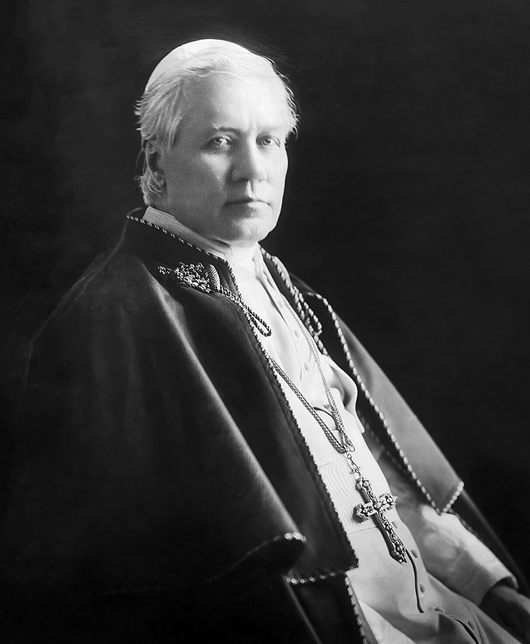
These discussions seem to be a really important part of the afternoon. SSPX Resistance masses are held in Latin, except for a Bible reading and a sermon, so there are long chunks of the 90-minute service in which Father King speaks, back turned to the congregation, in a dead language. But everyone, no matter their classical education, can follow and participate in the political chats that take place afterwards.
When Williamson gives a mass in London or Kent, his sermons are far more political. In one recent service, he complained about the number of Jews in Joe Biden’s cabinet. In Southport, on the other hand, King leaves the most extreme stuff until the coffee break. The church, he says, has been at war with Jews for 2,000 years. “All these globalists,” he explains, perhaps using a synonym for a certain Abrahamic faith, “and international freemasons are tools and instruments of the Devil to destroy the church on every level.” I’m no theologian, but it sounds a long way away from Jesus’s message of loving neighbours.
King is from Yorkshire but has been the Resistance’s man in Merseyside for years. He came to tradition, as he puts it, in the early 1980s, and has been an associate of Williamson since the later part of that decade. He has less of an online presence compared to the bishop, joking that he is “famous enough already”. Both are devotees of the late Archbishop Marcel Lefebvre, a French traditionalist who set up the SSPX in 1970, who was staunchly opposed to Vatican reforms. King, who did not respond to a request for comment, wants to reunite the Resistance with the main church. “We're hoping that the Vatican and Rome will come to its senses and turn back to tradition,” he says optimistically. With the liberal Pope Francis in the Vatican, any reconciliation is hardly likely.
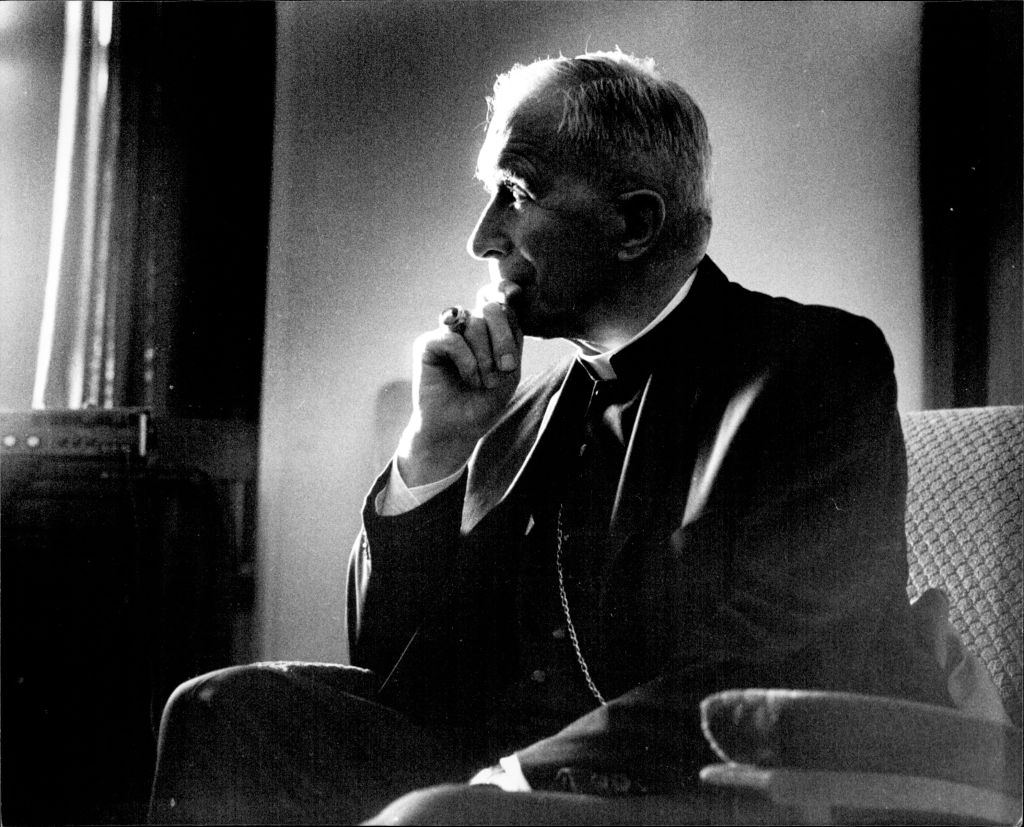
In some ways, the SSPX Resistance is an irrelevance. It receives no support from the Vatican, and it’s now confined to meeting in private homes and function rooms. Bishop Williamson occasionally travels abroad to give sermons in Europe, but it’s not like they have the resources to pay for a church. Still, I’m grimly fascinated by what makes someone join these drab fanatics, and spend their Sundays talking about Jews controlling the world. I get the impression that they see themselves as the last warriors defending a holy redoubt — even if that is a tumbledown house in suburban Southport — from Jews. The funny thing is, it’s not even like there are many Jews in Southport, let alone enough of them to scheme against the church. According to surveys, there are only 200 members of the race that is plotting the downfall of Christendom in this town.
But to listening to Father King, it sounds like he is locked in a spiritual battle with the dwindling Jewish population of Merseyside. “From the beginning, they have been resisting us, denying and opposing the work of the church, trying to destroy it,” he says. “There will come a moment when they see the truth and they’ll lose all their power and influence. But it looks like that’s reserved for the end of the world. In the meantime, we’ve got to put up with all this opposition and all these efforts and attempts to undermine everything.” He looks at me expectantly, and I’m not sure what to say. “Amen,” I venture. Father King chuckles. I pay for my pamphlet on usury, and leave with a sense of relief.

Comments
Latest
And the winner is...
Losing local radio — and my mum
A place in the sun: How do a bankrupt charity boss and his councillor partner afford a “luxury” flat abroad?
Gritty, cheeky, sincere: How Martin Parr captured the spirit of Merseyside
My Sunday morning inside Southport’s extremist Catholic sect
The Post goes undercover at a fringe church led by a Holocaust denier